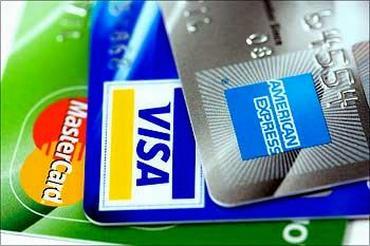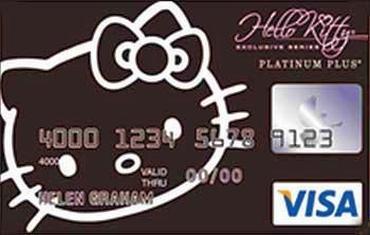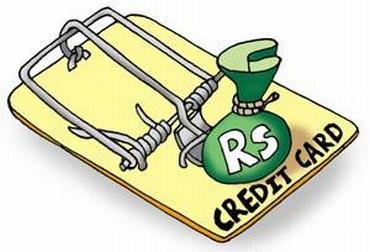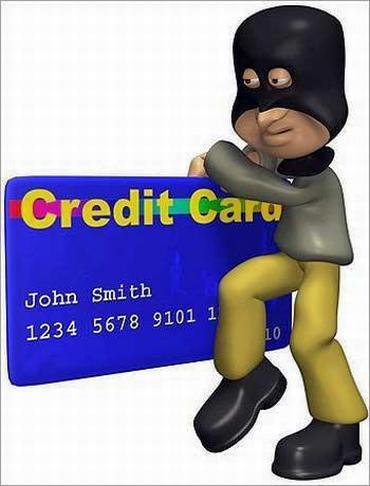
For common people like you and me, the credit is something we do not want to be associated with and to add to this fear the daily headlines flashing 'Credit Crisis' across some part of the world almost every other day makes credit a taboo for us.
If used wisely, credit actually can work for you. The credit card user profile assumed in this article is that of a 'Transactor' (in the card business lingo), which means, you spend on your card during the month and use it to fund all your purchases, use the free credit period which is generally between 17 to 55 days from the date of purchase and then on the payment due date pay up the 'entire amount due' (read not the 'minimum amount due').
Please ensure that you do not pay any interest charges, late fee charges, financing charges or any other fine print charges by failing to pay the entire amount due by missing your due date.
Click NEXT to read how you can make your credit card work for you.

How to make your credit card work for you:
Step 1: Know your car
1. Scan the cards in your wallet
2. Check if you possess a master card or visa card and whether your card comes under the Silver/Gold /Titanium/Platinum bracket
3. Check the rewards earning structure for each of them. Which means, for every Rs 100 you spend how many points the card company is awarding you. Also check for any specialty stores/purchases where bonus points are awarded.
4. Are there any additional features such as surcharge waivers on fuel, discounts on dining, flying etc?
5. The next step is to check the rewards redemption structure offered by your card. Do you have a cash back structure, redemption against fuel, air miles, and gifts/gift vouchers? Scan the lot to understand what interests you in the gamut of redemption options.
Although this seems like a lot of information to seek, it won't take you more than a glance at the card company's website or a single call to their customer service. Once you have done this preliminary scanning you would have a fair idea how many reward points each card in your wallet will earn for you and the items/options you want to redeem it.

We do not advocate higher spending and thereby earning more reward points. This is a common pitfall for a credit crisis in our personal lives. The big assumption here is the expenditure stated below was earlier funded by you in cash or through net banking/debit card transactions.
Utility bills
Why pay cash for your utility bills when your credit card company is willing to offer you a 17 to 55 day credit period. These include your telephone, electricity, mobile phones bills etc. Set up a standing instruction with your card company and get these payments funded through your credit card.
In simple words these utility bills will ensure you earn your quota of reward points without going on a gross spending spree.
Please note: Most of the card companies offer utility bill payments for free. But it is wiser to check once for any hidden charges associated with use of such facilities.
Insurance premiums
Most of us have some or the other form of insurance liability for which premiums have to be paid in a financial year and all insurance companies are generous enough to allow you to pay your premiums through your card. So take this opportunity and pay by card (if your card credit limit permits it).
This allows your actual cash resources to earn an interest from the bank during the 17 to 55 day credit free period, as well as reward points on your card.
Electronic/expensive purchases
This is applicable only in those stores which do not charge you that 1 to 2.5 per cent extra (especially electronics stores) for paying through a credit card. Many big shopping stores don't charge you, but it is wiser to ask before you decide to fund this purchase through your credit card.

To put a little bit of mathematics into the argument, assume you have a credit card which earns you 1 reward point for every Rs 100 you spend and you have the purchases lined up as shown in the table below:
If your rewards redemption rate is Re 1 for every point earned then you have Rs 810 earned on your credit card.
In addition by using your card to fund these expenditures you would have earned an interest amount ranging from Rs 132 to Rs 426 in your savings account.

*17 to 55 days is free credit period provided by the card company (assumed). Interest is calculated as per the savings bank account rate of 3.5 per cent per annum calculated on the daily balance.

Most credit cards come with fuel surcharge waivers, discounts at select merchant outlets, ticketing fare discounts. Also, Master and Visa keep running a lot of offers from time to time, ranging from fine dining, and entertainment to free airport lounge access. It is good to know what the privilege you enjoy is!
And lastly, the ground rules...
While you get ready to spend wisely and earn more through your credit card, there are a few things to keep in mind:
1. Remember your credit card due date; pay on time and pay your complete outstanding.
2. Never exceed your credit limit. You may end up paying more in terms of overdraft charges.
3. Keep the basic safety features of transacting with a card in mind.
4. Do not throw away the card transaction slips until the monthly statement has arrived and you have verified it. In case of online transactions make sure you save the transaction reference number or take screenshots and keep a record of it.
5. Spend as much as you can pay. Avoid paying any interest, financing or late payment charges on your credit card at all costs.